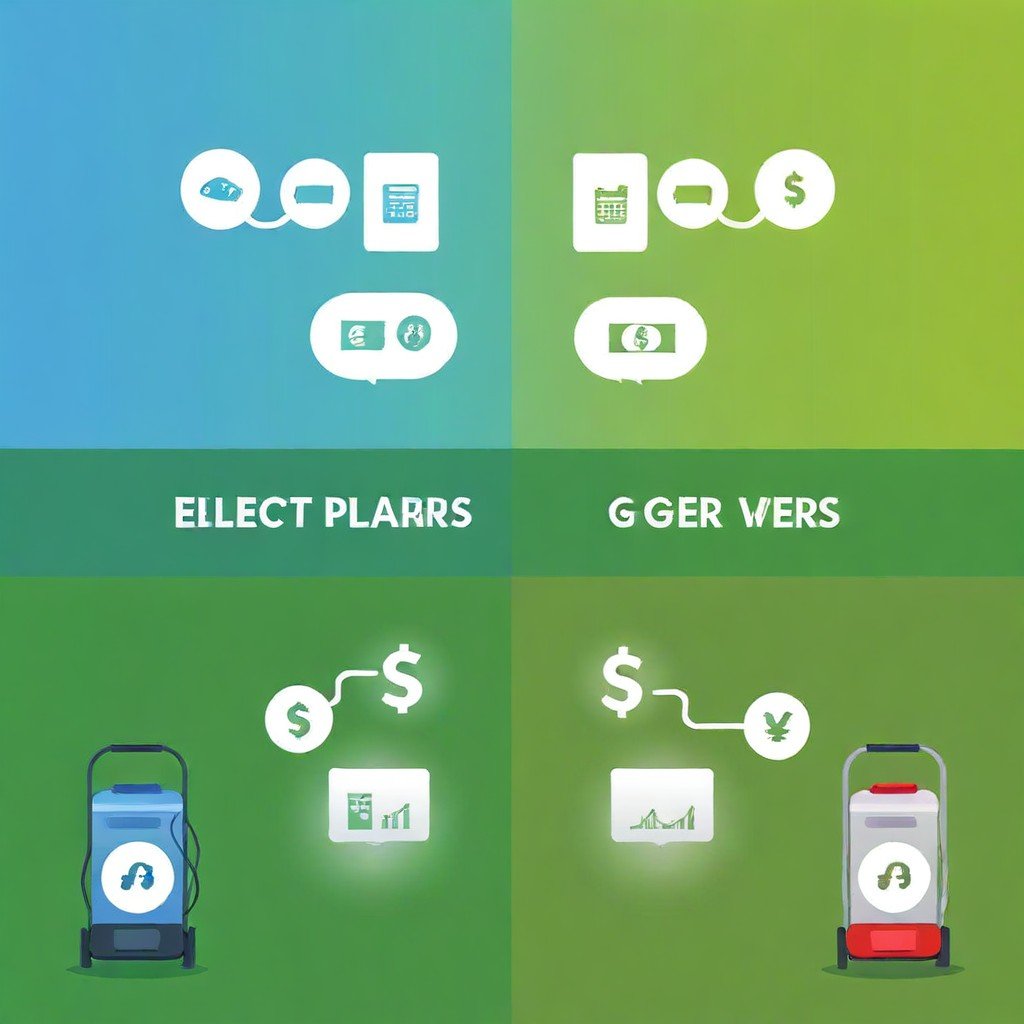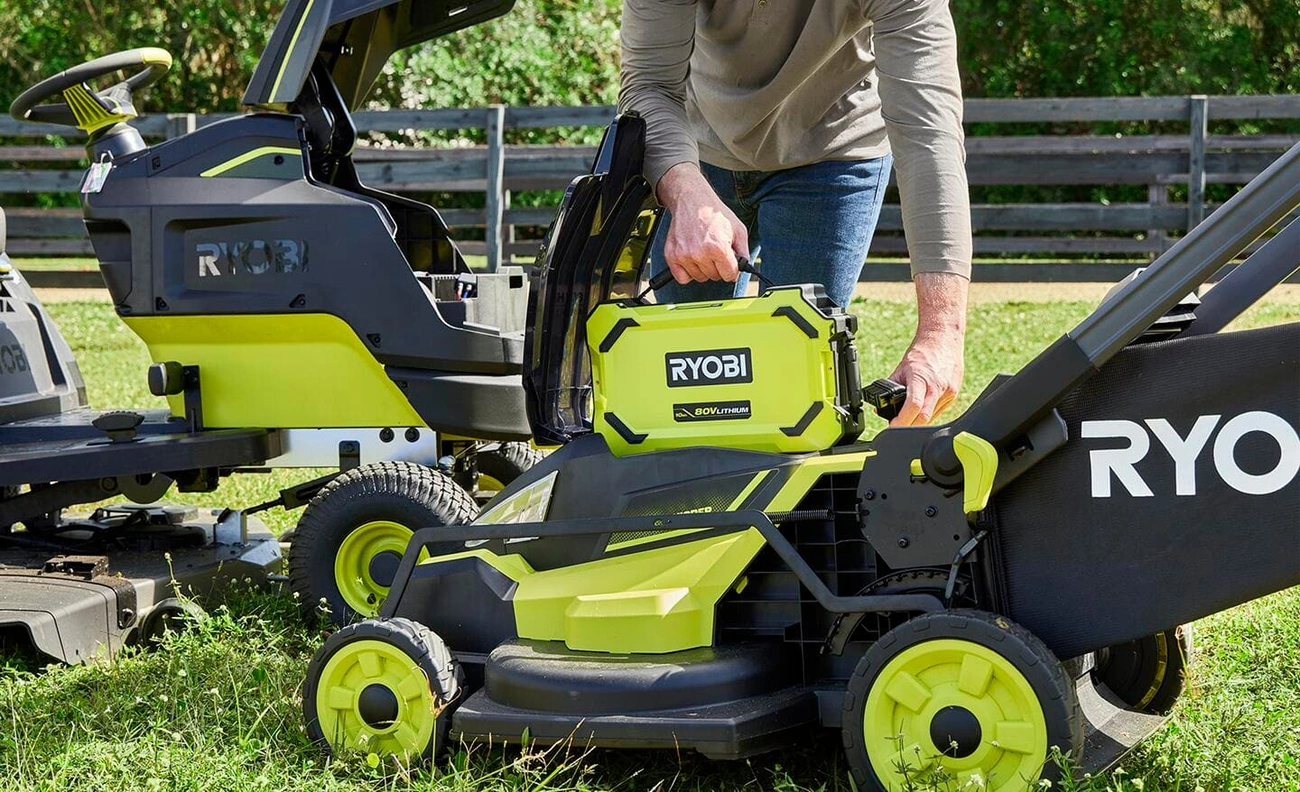The choice between an Electric vs a gas mower goes beyond grass-cutting capabilities and directly affects your long-term savings. Gas mowers might feel like a safe, familiar option, but they demand around $3,200 in fuel costs for tasks that electric models complete with just $108 worth of electricity.
Money matters stretch far beyond the price tag when comparing electric vs. gas mowers and gas lawn mower options. Your wallet feels the difference through various costs over time. Most people find gas models convenient because they already use gas-powered equipment, but the financial equation shifts dramatically as years pass. The total ownership costs also reflect environmental concerns—gas-powered lawn equipment accounts for approximately 5% of America’s total greenhouse gas emissions. A gas mower running for one hour creates pollution equivalent to an SUV driving 23,500 miles.
This piece breaks down the financial comparison between these mowers, from the original purchase to yearly maintenance costs. Gas mowers prove more effective for larger yards with challenging terrain, while electric models work best in compact spaces and appeal to eco-conscious homeowners. The facts speak clearly—even the noise levels tell a story, with Electric vs Gas Mowers humming at 54-80 decibels compared to gas models roaring at 90-100+ decibels. Let’s discover which option saves more money in the long run.
Initial Purchase Cost: Which One Hits Your Wallet First?
The sticker price catches your eye first while shopping for a new lawn mower. The original investment’s true impact on your wallet becomes clear once you compare both mower types side by side.
Electric mower price range
Electric mowers cost more upfront than gas models. Push and self-propelled electric models range from $100 to $500. Battery-powered cordless options usually cost more within this range. Most homeowners pay around $450 for a quality electric push mower.
You should know that some Electric vs Gas Mowers come with batteries and chargers included. Others need separate purchases of these items, which adds by a lot to your original cost. High-end electric riding mowers match 22-24 HP gas models and cost between $5,000 $7,000 on larger properties.
Gas mower price range
Gas-powered push mowers give you a budget-friendly starting point. Prices range from $150 to $800, based on features and quality. Popular retailers like Home Depot sell standard gas push mowers between $239 and $399. The average price sits around $320.
Gas models with 22-24 HP start around $3,500. These models cost $1,500-$3,500 less than similar electric versions at the high end. Gas-powered mowers typically cost $50 less than electric mowers with matching features.
What you get for the price
Electric mowers offer several money-saving benefits despite higher upfront costs. These mowers need no gas, require minimal maintenance, run quietly, and produce zero direct emissions. Most regular mowing jobs work well with electric models that save money over time.
Gas mowers deliver more raw power at the same upfront price. Budget-conscious buyers find the lower initial cost attractive. This advantage fades after factoring in long-term expenses. Gas, oil changes, and regular maintenance make gas mowers costlier throughout their lifetime.
Price differences become substantial with specialized commercial equipment. To cite an instance, see commercial-grade electric mowers like the Mean Green Rival at $33,669. These actually cost less than similar gas models, such as the Toro Groundsmaster at $45,000.
Ongoing Costs: Fuel, Electricity, and Maintenance
Your new mower’s true financial story starts after you bring it home. The ongoing costs often exceed the original purchase price as time goes by, which is a vital factor when choosing between electric and gas mowers.
Gas or electric lawn mower: fuel vs electricity costs
These two options show striking differences in operating costs. A gas mower uses about $1.50 worth of fuel per mow for a half-acre lawn, while an electric mower costs just $0.10 to do the same job. Homeowners who mow 20 times each year will spend $31.50 on gas compared to a mere $2.10 on electricity.
Larger properties highlight this difference even more. Commercial operators who mow 50 acres weekly might spend $4,375 to $11,250 annually on gasoline. Electric equipment needs only $500-$800 worth of electricity to handle the same workload.
Maintenance needs and their cost over time
Gas mowers just need more upkeep than their electric counterparts. Your expected costs include:
- $15-$21 each year when you handle oil changes, spark plugs, and air filters yourself
- $200 or less annually if you choose professional service
Electric mowers need only blade sharpening and basic cleaning. These minimal requirements save owners substantial money throughout the mower’s life.
Battery replacement and charging expenses
Electric mower owners face one major recurring cost – battery replacement. Lithium-ion batteries typically last 4-6 years before they need replacing. New batteries cost between $100 $350, depending on their voltage and capacity.
Battery management involves:
- Charging sessions lasting 90 minutes to 5 hours
- Power usage of 1.5-2 kWh per acre
- Battery efficiency reaching 93.5%
Electric mowers deliver roughly 35% savings over 10 years compared to gas models, even with one battery replacement at the halfway point. This significant difference makes electric mowers an appealing choice for budget-conscious homeowners, despite costing more upfront.
Performance and Longevity: Do You Get What You Pay For?

A mower’s true value goes beyond its price tag and fuel costs. Performance and reliability matter more in the long run.
Durability and lifespan of electric vs gas mowers
Gas mowers and electric mowers show a clear difference in their lifespan. Well-maintained gas mowers last 8-10 years, and some models can reach 10-20 years. Electric versions typically serve 5-7 years. This gap exists because gas models come with heavy-duty metal parts, while electric options often use plastic components.
Handling thick grass and large lawns
Gas mowers work without doubt better in challenging conditions. These machines power through tough weeds, thick grass, and wet conditions with ease. Modern electric mowers have improved a lot in spite of that. Most battery-powered models can handle a quarter-acre lawn on one charge and run for 45-50 minutes per cycle. Gas-powered versions cover up to 14,000 square feet with one tank, making them perfect for bigger yards.
Startup experience and ease of use
Electric mowers stand out in this category. Users love their simple push-button start that removes all pull-cord hassles. These models rate 4.2 out of 5 for ease of use compared to 3.8 for gas versions. The lighter weight makes them easier to move around and reduces user fatigue. Electric mowers’ simpler design leads to fewer mechanical problems.
Environmental and Hidden Costs That Affect Your Budget

Lawn maintenance costs extend far beyond the initial purchase price and fuel expenses. Environmental factors translate into actual dollars spent or saved.
Carbon emissions and sustainability
Electric alternatives produce 16 times fewer CO2 emissions per acre than gas mowers. A gas mower running for just one hour generates pollution equivalent to driving an SUV 23,500 miles. These environmental effects represent tangible costs as more communities adopt carbon taxes and restrict high-emission equipment.
Gas mowers release harmful pollutants that degrade air quality, including carbon monoxide, nitrogen oxides, and volatile organic compounds. The annual pollution numbers tell a compelling story:
| Emissions (grams/year) | Gas Mowers | Electric Mowers |
|---|---|---|
| Hydrocarbons | 1,475.0 | 0.8172 |
| Carbon Monoxide | 11,425.0 | 4.572 |
| Carbon Dioxide | 24,075.0 | 21,240.0 |
| Nitrogen Oxides | 50.0 | 11.28 |
Noise pollution and neighborhood impact
Electric mowers generate 54-80 decibels compared to gas mowers’ 90-100+ decibels. This noise difference proves significant—gas mowers match the volume of chainsaws or jackhammers. The excessive noise can damage hearing and lead to neighborhood complaints or ordinance violations, which may result in fines.
Battery disposal and recycling concerns
Electric mowers present their own environmental challenges. Many jurisdictions mandate proper battery disposal—California bans battery disposal in regular trash. Batteries disposed of incorrectly can trigger fires that endanger lives and property. Many retailers solve this problem by offering free battery recycling programs.
Conclusion
The cost difference between electric and gas mowers goes way beyond the price tag. Electric mowers need more money upfront, but prove cheaper over time. A decade of using an electric mower saves about 35% money compared to gas models, even with new batteries now and then.
Gas mowers shine in certain situations. These mowers pack enough power to handle tough terrain and bigger yards. They also last 8-10 years, while electric ones run for 5-7 years.
The math favors electric mowers for most homeowners. To name just one example, see how mowing a half-acre lawn 20 times a year costs $31.50 in gas but only $2.10 in electricity. Gas mowers also need $100-$200 yearly maintenance, while electric ones need minimal care.
Gas mowers take a heavy toll on the environment. They pump out 16 times more CO2 than electric models, make as much noise as chainsaws, and hurt the air quality in neighborhoods.
So which mower saves more money? Electric mowers offer better value for average homeowners with smaller yards who want convenience and lower running costs, despite higher upfront prices. Homeowners with large properties and challenging terrain might still prefer gas models’ power and durability. Your lawn’s size, budget, timing, and environmental concerns will help you pick the mower that cuts costs best for you.


Very deep and informative comparison!
I can confirm gas mover is too loud, so if I would by it now I would go for electric!